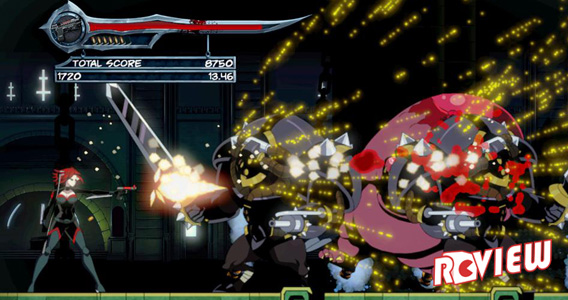
I am fail.
While that conclusion will come as no surprise to some, the suspicion was finally confirmed for me after clearing the first of Betrayal’s stages, wherein I was awarded an “F” grade, and the designation of “wormfood”. That the same reward awaited me at the end of every stage would seemingly suggest that WayForward’s resurrection of Majesco’s dhampir vixen is a difficult affair. And while plenty of voices across the Internet support this argument, it’s simply not accurate.
The near infinite supply of health, unlimited lives, consistently well placed checkpoints, wide-sweeping attacks, and even a laser cannon that spreads across the entire screen, make it ridiculous to suggest that Rayne’s 2D debut reaches anywhere close to the difficulty of nostalgic side-scrolling titles that kept gamers grinding their teeth and stores selling a steady supply of replacement controllers back in the day.
Betrayal does liberally sprinkle stages with cheap trickery however, situations that depend as much on luck as a mastery of the controls – split evenly between platforming sections that unleash floating projectiles while requiring precision jumping, and arena areas where waves of enemies work to drain the blood with the advantage of restricted space.
The real difficulty of Betrayal is in reconciling the shortfalls that leave a promising release far less the experience it could have been, delivering a digital title where every element that makes it excel also directly causes it to disappoint – where the high point of Betrayal causes direct gameplay hiccups that undermine the effort and expose the under-developed nature of the entire game.